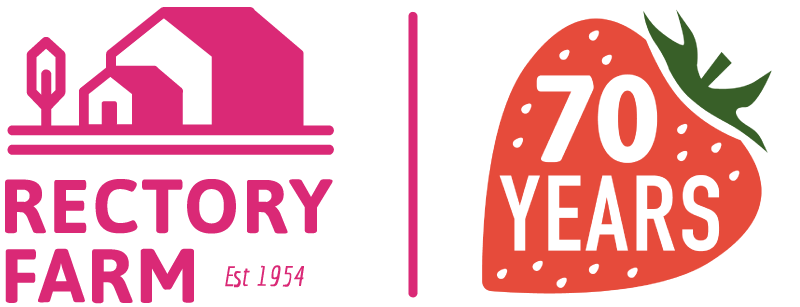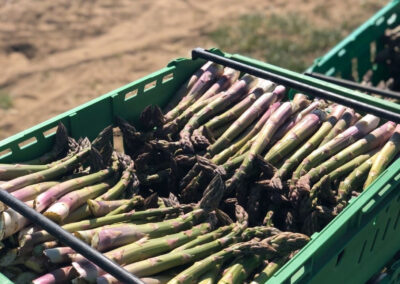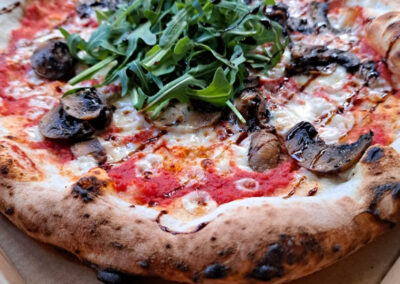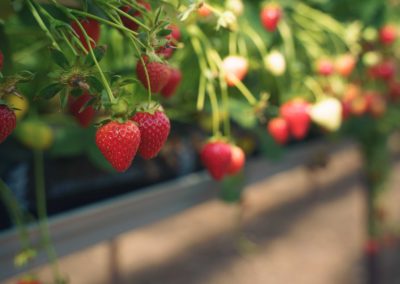Ukrainians as well as Belarusians, Moldovans, and Russians, have worked at Rectory Farm and at nearly all other UK fruit and vegetable farms. When the EU brought in its “Community Preference” rules over ten years ago they were stopped coming and UK farms relied on EU Eastern Europeans.
The Ukrainians were well known with us and by other farmers for being very hard workers. We noticed that they put their Ukrainian flag on their mobile homes and were proud of being Ukrainian and proud of their country. They had the reputation of “getting on with the job”. It is therefore not surprising to us at Rectory farm that Putin, and the West too, has hugely miscalculated and been surprised by the Ukrainian people both politically and militarily. Note the image at the top of this post: it shows a Russian tank – which looks like a ML-TB, a Soviet-era multipurpose fully amphibious auxiliary armoured tracked vehicle – being stolen by a Ukrainian farmer and driven away.
Ukraine is, in area, two and a half times the size of the UK with a higher percentage of cultivated land. Some 6% (UK 1-1.5%) of Ukrainians work in agriculture and contribute 11% of GDP.
Farming will continue in Ukraine but to a more limited extent. Ukraine continued with national service (18 months) and more recently set up a professional armed forces relying less on conscription so nearly all the men will have some experience and training in military life. Those on farms even more competent as they will tend to have more practical experience of machinery and living in the open countryside.
The Ukrainian farmers we hear from have lost most of their staff as all men between 18 and 60 have been called up. The farms are rearranging their cropping plans to “do the most with the least”. Winter Wheat, a major crop for Ukraine, will have been drilled in the autumn but the spring planting of Maize and Sunflowers (Ukraine is no 1 in the world for sunflower oil) is about to start. The higher labour input crops like Potatoes and horticultural crops will likely have to be reduced on these farms and production will have to rely on the smallholder farmers to make up the slack. Even so it is going to be difficult for all to be drilled let alone properly fertilized, managed and harvested.
Ukrainian farms drill throughout the night; this will be extremely dangerous now as the lights on their tractors will draw the attention of Russian land and air forces.
Ukrainian farms have plenty of wheat on farm, though getting it to the flour mills (and then made into bread) is a different question. Much of the wheat and maize is exported through Odessa (and other ports). Whether that will continue to be possible is not known and is, in part, along with high fuel costs, driving the world-wide increase in basic food prices. In any case President Zelensky has put a stop on all food exports. Furthermore, merchant ships will be reluctant to enter a War Zone.
Some farms will be more resilient than others. The western concept of “just in time” production is more efficient but it is not resilient. When things go wrong with a “just in time” system they go very badly wrong and don’t work at all. Farms – whether UK or elsewhere – tend towards the resilient business model, which means they are not as efficient as they could be but always keep going.
Those more isolated Ukrainian farms will have their own power supply (from generators), their own water supply and larger stocks of fuel. Even so getting parts and filters for their tractors (yes they use the same colour tractors as we do in the UK) and machinery relies on a distribution system that is not working at its best. UK farmers are helping with this specialized skill by sending spares.
The recent UK Govt announcement that Ukrainian refugees, more properly called evacuees, can live and work in the UK will be welcomed by UK farmers as the reputation of previous Ukrainians in the UK is “second to none”. A reputation that should soon be apparent to other UK citizens.
- Richard Stanley, Farmer



